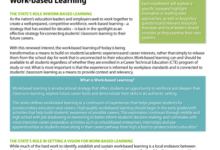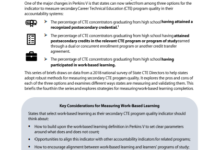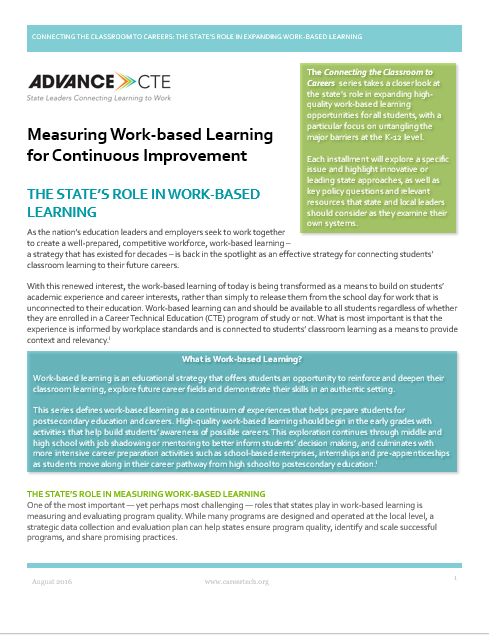Work-based learning provides a continuum of activities — from career exploration and job shadowing to internships and apprenticeships — that help students develop technical and professional skills in an authentic work environment. While many work-based learning programs are designed and operated at the local level, several states have begun building a data collection and evaluation strategy to ensure program quality, identify and scale successful programs, and share promising practices.
The brief from Advance CTE is the latest installment in the “Connecting the Classroom to Careers” series, which examines the state’s role in expanding work-based learning opportunities for K-12 students. This issue highlights examples from West Virginia, Tennessee and Massachusetts that demonstrate either a systems-level or student-level approach to measuring work-based learning activities.
Other installments in the series include:







